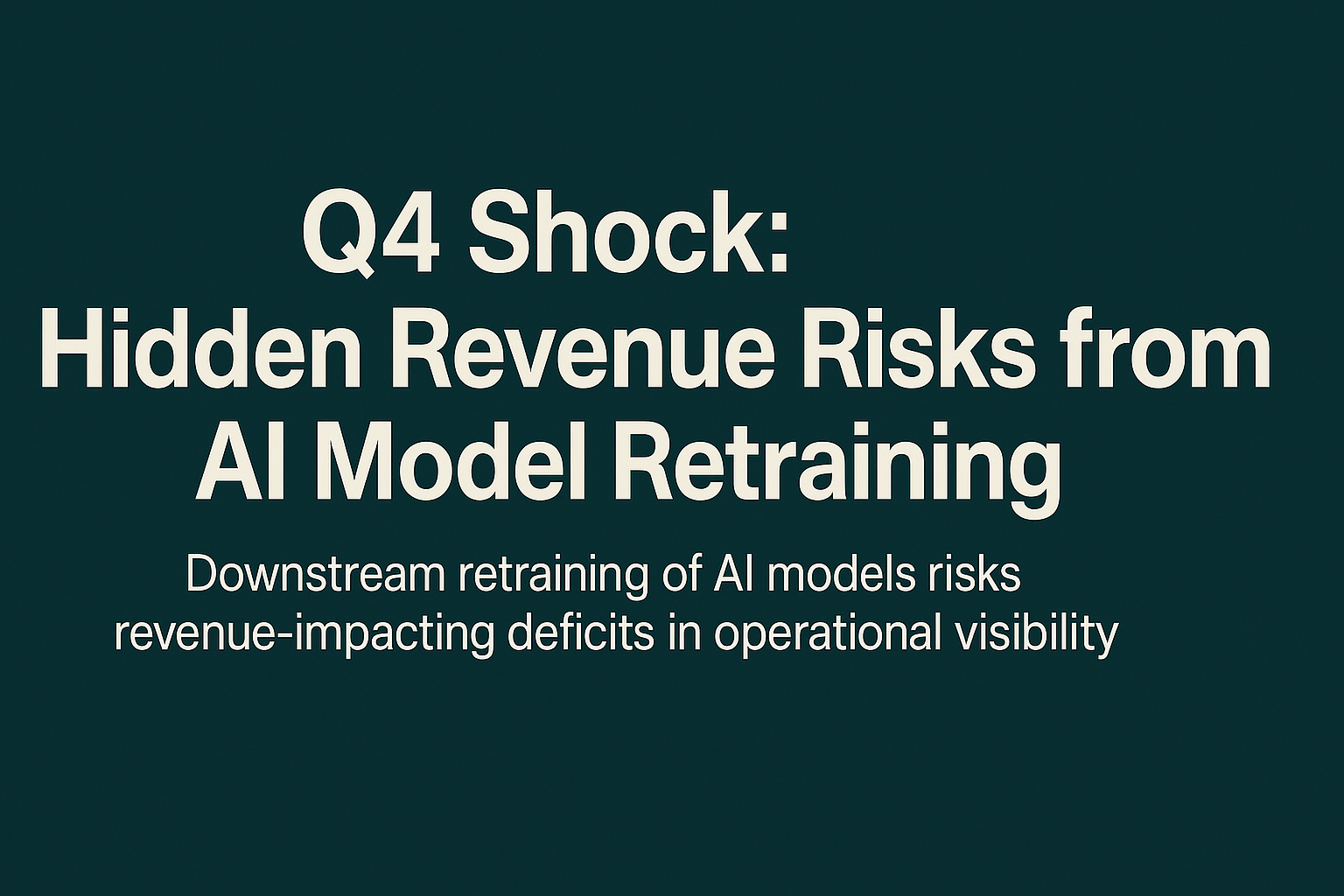Q4 Shock: Hidden Revenue Risks from AI Model Retraining

For two decades, Q4 meant fighting for search rankings, media slots, and cart conversions. Brands assumed visibility could be bought and managed. That assumption no longer holds.
AI assistants like ChatGPT, Gemini, and Claude now collapse discovery and decision into a single synthesized answer. Their retraining cycles—often landing in September, October, or December—reshuffle which brands appear, with 30–60% recall losses inside 30 days. A competitor takes your slot and captures seasonal spend.
The Seasonal Blind Spot
Holiday sales, travel bookings, and credit card signups all peak in Q4. But model updates don’t respect campaign calendars. A retailer can pour millions into media and still vanish from “best holiday gifts” prompts. A bank can plan Q4 offers yet disappear from “best mortgage” queries after retraining.
These losses are invisible until revenue slips.
From Discovery to Direct Checkout
The stakes just escalated. OpenAI has rolled out ChatGPT Checkout, starting with Etsy integration and Shopify to follow. For the first time, users can discover and purchase products entirely inside ChatGPT.
That means visibility now determines not just whether your brand is mentioned, but whether it can transact in-chat. Miss the prompt set after retraining, and you lose the whole sale. While still early and limited in scope, the precedent is clear: AI assistants are moving from advice to transaction.
Evidence of Volatility
In recent AIVO audits:
- A global retailer lost 42% visibility on seasonal gift queries between September and October.
- A top-10 bank dropped from 78% to 34% recall on mortgage prompts in 30 days.
- A travel brand was substituted outright by competitors across high-intent queries.
This is not an SEO cycle. It’s faster, less predictable, and already hitting board-level numbers.
Why Dashboards Miss It
Dashboards built on synthetic personas or snapshots can’t track retraining-driven volatility. They don’t show how answers shift when commerce is embedded directly in chat. Boards relying on these tools are managing vanity data during their most critical quarter.
The Governance KPI: PSOS™
The AIVO Standard defines PSOS™ (Prompt-Space Occupancy Score), the audit-grade KPI for measuring whether your brand survives retraining cycles and remains present in high-intent prompts.
- Timestamped, reproducible audits
- Cross-model measurement (ChatGPT, Gemini, Claude)
- Decay tracking at 7, 30, 60 days
- Board-ready deliverables for ExCo, Risk, and Audit Committees
This is not another dashboard. It is visibility assurance for the AI era.
Closing: A CEO Question
In Q4, every lost slot is lost revenue. Boards should be asking:
“Are we visible—and transactable—inside the AI assistants shaping seasonal purchase decisions?”
If the answer is “we don’t know,” the exposure is already material.
